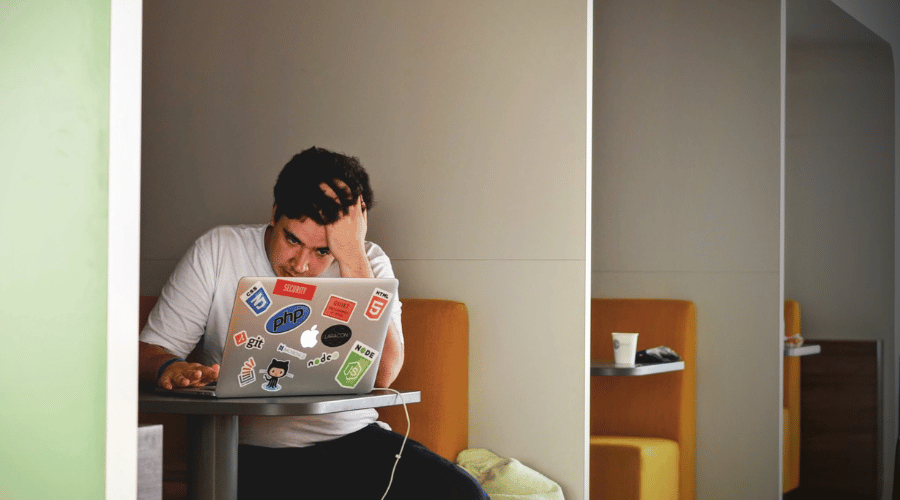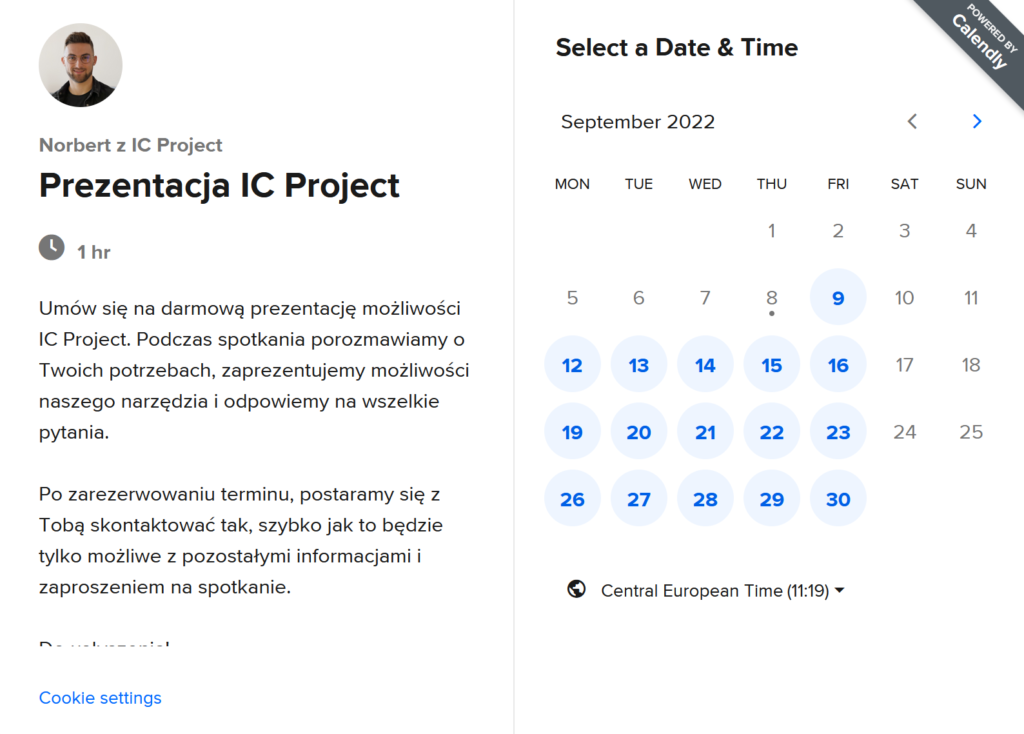Job burnout can affect every employee. There are many symptoms of professional burnout, but some of the most common include a lack of job satisfaction or energy to continue working. Work ceases to give pleasure, causing both mental and physical fatigue. Many employees suffer from exhaustion and lack of motivation to continue. This is known as professional burnout syndrome. So how can we prevent this disease of the 21st century?
What causes of job burnout can we distinguish?
It is impossible to define a specific cause of professional burnout. Interpersonal factors, lack of coping skills, or hypersensitivity in certain situations can all have an impact. The main background of job burnout is prolonged stress, which causes physical and mental exhaustion. Usually, at the beginning, we enjoy our work, but excessive responsibilities, poor nutrition or lack of physical activity cause us anxiety and stress. Very often, this also results in a downgrading of one’s own performance.

Factors that are associated with job burnout are:
- lack of work-life balance
- inability to achieve desired results despite a high workload
- lack of support and conflicts with other colleagues
- lack of advancement opportunities in the workplace
- monotony of tasks performed
- inability to meet the demands of the job
- sense of lack of self-esteem
- constant stress in the workplace and time pressure
As you can see, we can distinguish a lot of factors leading to job burnout. It is therefore hard to define in each case what might be the key one in your situation. Undoubtedly, one of the main causes of job burnout is the persistent failure to cope with stress, and the emergence of a belief in the inability to cope with the difficulties and frustrations of work. Often, this is linked to expectations that are too high in relation to what possible is. If work at some point becomes an unpleasant chore, the path to burnout is shortened to a minimum in this situation. Keep this in mind in order to react before job burnout, not during it.
Symptoms of job burnout
More than half of our lives are spent at work. In addition to being able to meet needs, work should provide the employee with opportunities for self-fulfilment, gaining satisfaction and strengthening skills. The more positive aspects for the employee, the greater the pleasure and further the path to burnout.
Job satisfaction is believed to be influenced by the type of work performed and its meaning for the individual. What an employee goes through in the workplace affects not only his or her professional life, but also his or her private life. The higher the level of job satisfaction, the greater the enjoyment of life. You know very well that private life and professional life go hand in hand – professional form translates into private success.
Work can be seen as a vocation, a source of income and an opportunity for self-improvement. However, under certain conditions, it can lead to negative states such as emotional, mental and physical exhaustion, the end result of a gradual burnout process. With all the positive aspects we have managed to mention, the symptoms of professional burnout are also linked.
So what are the most common symptoms of job burnout?
- sleep disorders
- chronic fatigue
- emotional exhaustion
- significant lowering of the body’s resistance
- negative attitude towards customers and employees
- lowered self-esteem
- frequent headaches
- long-term lack of energy
Initial symptoms are often downplayed – stress, exhaustion or irritability. Sleep disturbances, lack of appetite and susceptibility to infection appear. A lack of empathy can be seen in interactions with staff. The behaviour of those around them is perceived as malicious. The desire to isolate and withdraw is intensified. What is experienced at work is transferred home to relationships with loved ones. This is a process that must be avoided at all costs in our lives.

The burnout syndrome is closely linked to the place of employment. Its effects are not only a personal problem of the employee, but burnout becomes a social problem. Very often, job burnout in a negative workplace does not affect the individual, but is a team disease. As you are well aware, it is influenced by many conditions. If work turns out to be a negative experience throughout the company and for most of the team, job burnout can affect more employees. Managers should pay attention at the right time to prevent job burnout.
Who is at risk of job burnout?
People in stressful professions that involve providing social services and helping others, e.g. social workers, psychologists and even teachers, are particularly susceptible to occupational burnout. The reason for this phenomenon is that these professions have a high emotional involvement with other strangers. Thus, we often get too involved with others and this indirectly transfers into our lives.
The problem of burnout also often affects people whose work requires constant contact with people, such as salespeople, customer service employees, managers, as well as employees of large corporations. Working with customers often involves a variety of behaviours, which can generate negative feelings in the long term. Every individual has different behaviour and character traits.
The mentioned salesperson must have an antidote for every situation, and unfortunately this often becomes impossible. The professions mentioned are naturally at the forefront of the risk of professional burnout. Unfortunately, in practice, virtually any profession can generate symptoms of professional burnout. It is crucial to react at the right moment and take the right steps to recover from this disease.
What are the stages of job burnout?
Job burnout is not fatigue at work that disappears after a few days off. It develops gradually and can last for months or even longer. While the beginning, as in many situations, seems harmless, it can turn into quite a problem.
At the beginning, we can distinguish a warning period. Then there is frustration and a feeling of depression. Sleep problems and headaches occur. At this stage, you can overcome the symptoms quite easily. Reduce your workload, develop hobbies and invest in relaxation. These are activities that should distract you from work and thus have a very positive effect on the first signals from your body.

If you overlook any symptoms, you will enter a phase of professional burnout. This manifests itself in poor quality work, easy outbursts of frustration and impatience with others. At this stage, it is necessary to take an extended break and find forms of detachment from work. Failure to address the above symptoms will lead to a long-term state of job burnout. Symptoms occurring at this stage often include feelings of loneliness, relationship crisis with loved ones and even depression. At this point, specialist help is often necessary. A psychologist may be able to help with professional burnout.
Remember that not every crisis is professional burnout. The key is to react at the right moments. If you put your mind at rest at the moment of crisis, that should be the optimal solution to the whole situation. Every situation has a way out, the key is to just find it when the need arises.
Job burnout – how not to fall into your own trap?
Occupational burnout is commonly referred to as the disease of the 21st century. A dozen or so years ago, nobody even thought about such a disease. Higher demands, more and more stress and growing awareness on the market have resulted in the emergence of a new disease of civilisation, which is the subject of this article.
Did you know that you can create a trap for professional burnout for yourself when you least expect it? You probably know the situation when you enjoy your work very much and new professional challenges are your goals on which you spend a lot of time. You want to work effectively, and thus your commitment sometimes exceeds a certain limit. At this point, you create your own trap for yourself, which can unexpectedly catch professional burnout. So how is this possible?

The first aspect that can cause job burnout is too much dedication to work. If you are giving your full attention to your job duties at this point, it is a mistake. You will never be able to maintain full focus and satisfaction with the delegated tasks. You must always have a balance between work, private life and rest that causes you to recharge your batteries colloquially. Even though you enjoy your tasks and don’t feel the need for extra rest, a lack of enforced balance can be the first step to professional burnout. You do a lot, in a moment even more, and the end limit for you does not exist.
For a short period of time, this is great for your productivity, but eventually there will come a crisis moment. Willy-nilly, there will be a situation where your work turns out to be less enjoyable, and in a moment you will notice a certain weariness with the duties you perform. This will all be due to too much work in the initial moments. Pleasure in your profession can therefore present you with an unexpected trap for which you need to be prepared. More doesn’t always mean better, thus avoiding the initial stage that can cause the recently popular professional burnout in your life.
Tips to help avoid job burnout.
Professional burnout affects your entire life. Focusing only on work and putting effort only in this area will eventually lead to an imbalance in your life. A person who only gives of himself or herself and doesn’t rest begins to have problems in all areas of life. Keep the balance, the results will come with time. Work is important, but not the most important thing. You need to take care of your body and mind – while living your values. We have tried to concretise advice that will help you win against job burnout.
Organise your work better!
Put an end to stress at work and wondering what tasks you have to do. Organising your work ensures higher productivity, as well as confidence for each employee. It is extremely important to provide the right organisational environment within the company. By this, we mean the right technological tools to improve the productivity of each employee.
Project and task management programmes that streamline the aforementioned processes, but also guarantee additional opportunities for teamwork, are great. You define your tasks, set deadlines for them and, in addition, direct the entire work process. You always know what to do and when to do it – this guarantees the highest level of work organisation while keeping you focused on your planned tasks. All tasks are visualised in a variety of ways – in a list, on Kanban boards or as a schedule. This guarantees a friendly working environment.
If you want to familiarise yourself with the right tool, check out the capabilities of IC Project. It’s a project and task management programme that guarantees an orgnized environment for your entire team.
Switch off business devices after work.
Defining time for work is very important in our lives. Everyone needs to have a work-life balance. We are well aware of situations when we leave the office, finish our working hours and then the business phone rings. Do you answer it or not? Avoid this question – switch off your work device after you’ve done your work and you’ve got the matter covered.
Replying to messages, making phone calls, forming an email – these are all activities that you have to do during working hours and not during the time that is allocated to your private life. Failure to properly distinguish between activities can make your body worse off in the long term. This is important for your physical and mental health. Keep this in mind on holiday too!
Assertiveness – a huge help in relieving stress.
Assertiveness is a very important quality. Learn to say “no” when you feel exhausted. Sometimes overtime is unavoidable, but know your body’s capabilities well. If you can push back a deadline, take advantage of it. Constantly staying after hours at work can lead to exhaustion and even burnout and health problems. In some situations, assertiveness can be a key feature of your character. Say ‘no’ at the moment you need to do it.
Working in a hybrid system could be for you.
Hybrid working has become very popular recently. It’s a great solution for balancing the office with your home. You have time to work in the comfort of your home chair, but also break out of your home environment into an office full of people and your team. We believe that hybrid working can be a great alternative to office-based or entirely remote working. All research indicates that it is the hybrid in the working environment that has a positive impact on the employee experience.
If you are not currently working in a hybrid form, it may be worth discussing this with your manager. Many companies have introduced similar arrangements during the compulsion pandemic, and duty has become a pleasure for many. Sometimes a day working remotely in the context of the rest of the office can be a great alternative for your body.
How do you work from home without burning yourself out professionally?
When working remotely from home, it can sometimes be hard to focus solely on your tasks. Remote working has advantages, but it can also be daunting for many people. The boundaries between work and personal life are too easily blurred. In addition, we have round-the-clock access to company tools. This can result in doing overtime and working on weekends.

There are several effective ways to avoid job burnout when working remotely. It is very important to focus and detach yourself from all aspects that may be gaining your attention at times when it should be dedicated to tasks. If you don’t know how to focus, use our article with proven tips.
When working remotely, especially avoid eye fatigue and remember to take breaks when working at your computer. A popular rule is the 20/20/20 rule. After 20 minutes of looking at the screen, try to look at an object 20 feet away for 20 seconds. Get up from your computer every hour and walk around for a while. This will refresh your mind and your muscles will relax. The spine is also very important and needs movement. Stand up, straighten up, move your body. The smallest physical activity will make you feel better.
More enjoyment, less job burnout!
Balance, balance and more balance. Work has to be formed, and you have to find the right contrast between your work duties and your private life. No matter how much you love your tasks, rest is very important. The more enjoyment you have of your private life, the more effective your work will be and the less likely you are to have negative aspects. You know the symptoms of job burnout, so react at the initial moments and not when the real problem arises.
Work and private life are two different aspects. Separate the two and prioritise more activities that help take your mind off your professional responsibilities. The more joy in your life around your profession, the better you will be able to cope with the stress that occurs at work. Adequate relaxation after work will ensure that your body and mind are regenerated the next day and ready to move on.





